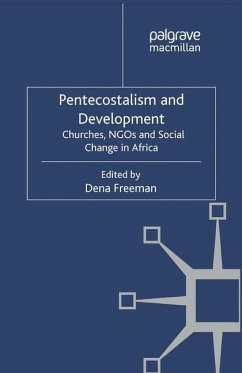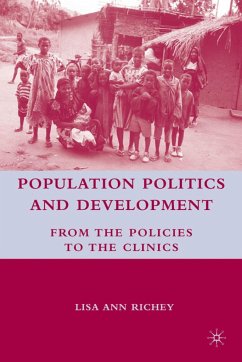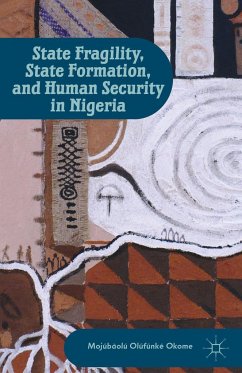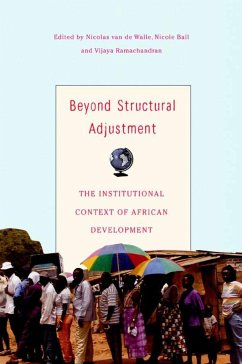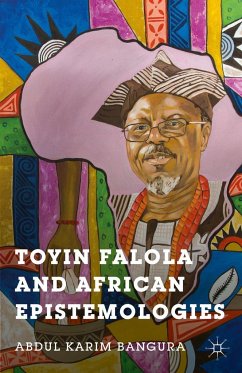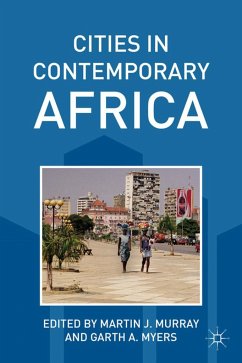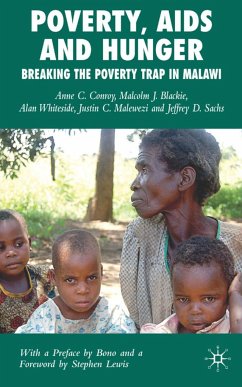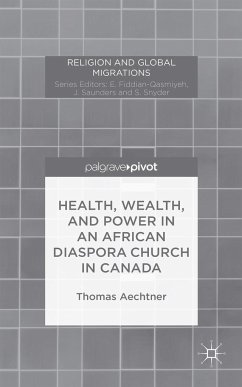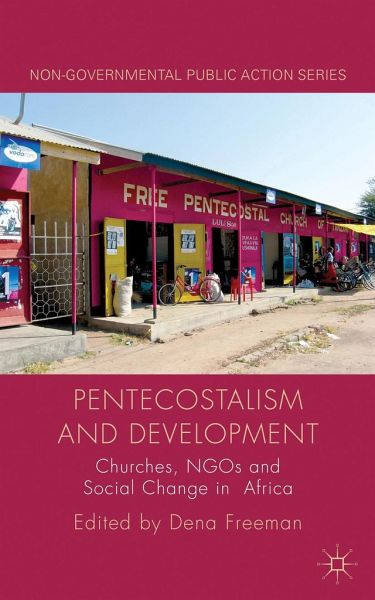
Gebundenes Buch
Pentecostalism and Development
Churches, Ngos and Social Change in Africa
Herausgegeben: Freeman, D.
Versandkostenfrei!
Versandfertig in 6-10 Tagen

PAYBACK Punkte
46 °P sammeln!





Development was founded on the belief that religion was not important to development processes. The contributors call this assumption into question and explore the practical impacts of religion by looking at the developmental consequences of Pentecostal Christianity in Africa, and by contrasting Pentecostal and secular models of change.
JEAN COMAROFF is Bernard E. and Ellen C. Sunny Distinguished Service Professor of Anthropology at the University of Chicago, USA DENA FREEMAN is Lecturer in the Department of Anthropology, University College, London, UK PAIVI HASU is Adjunct Professor at the University of Jyväskylä, Finland BEN JONES is Lecturer in the School of International Development at the University of East Anglia, UK DAMARIS PARSITAU is Lecturer in African Christianities at Egerton University, Kenya CHARLES PIOT is Professor of Cultural Anthropology at Duke University, USA JAMES H. SMITH is Associate Professor of Socio-Cultural Anthropology at the University of California, Davis, USA RIJK VAN DIJK is an anthropologist working at the African Studies Centre, Leiden, The Netherlands
Produktdetails
- Non-Governmental Public Action
- Verlag: Palgrave Macmillan / Palgrave Macmillan UK / Springer Palgrave Macmillan
- Artikelnr. des Verlages: 978-1-137-01724-6
- 2012
- Seitenzahl: 248
- Erscheinungstermin: 3. September 2012
- Englisch
- Abmessung: 223mm x 141mm x 25mm
- Gewicht: 445g
- ISBN-13: 9781137017246
- ISBN-10: 1137017244
- Artikelnr.: 36842534
Herstellerkennzeichnung
Libri GmbH
Europaallee 1
36244 Bad Hersfeld
gpsr@libri.de
'Scholars have for some time sensed that in many parts of the world development projects and Pentecostal Christianity stand in complex relations of competition and cooperation as programs that similarly promote personal and cultural change. But until now, no single work has sharpened this widespread intuition into a coherent line of argument or a workable research program. This groundbreaking book does both. With a superb introduction that tackles the key issues head on, followed by a group of first-class case studies that cash these issues out empirically, this collection should set the terms of debate about development and religion in Africa and well beyond for a long time to come.' - Joel Robbins, Professor of Anthropology, University of
Mehr anzeigen
California, San Diego, USA
'Full of new insights and transcending anthropologists' familiar condemnation of the aid industry, this book suggests a completely new direction for research on the type of change generally called 'development'.It boldly concludes that Pentecostal churches are often more effective agents of change than secular NGOs as they are more successful at emphasizing empowerment as personal transformation, enabling people to embrace change 'from below', and endowing such change with moral legitimacy. Using Weber's key insights, and drawing on a range of nuanced case studies, this fascinating book explores affinities between the 'Pentecostal ethic' and the forms of market-driven development which the aspirant middle class in Africa increasingly finds itself embracing.' - Deborah James, Professor of Anthropology, London School of Economics and Political Science, UK
'Full of new insights and transcending anthropologists' familiar condemnation of the aid industry, this book suggests a completely new direction for research on the type of change generally called 'development'.It boldly concludes that Pentecostal churches are often more effective agents of change than secular NGOs as they are more successful at emphasizing empowerment as personal transformation, enabling people to embrace change 'from below', and endowing such change with moral legitimacy. Using Weber's key insights, and drawing on a range of nuanced case studies, this fascinating book explores affinities between the 'Pentecostal ethic' and the forms of market-driven development which the aspirant middle class in Africa increasingly finds itself embracing.' - Deborah James, Professor of Anthropology, London School of Economics and Political Science, UK
Schließen
Für dieses Produkt wurde noch keine Bewertung abgegeben. Wir würden uns sehr freuen, wenn du die erste Bewertung schreibst!
Eine Bewertung schreiben
Eine Bewertung schreiben
Andere Kunden interessierten sich für


